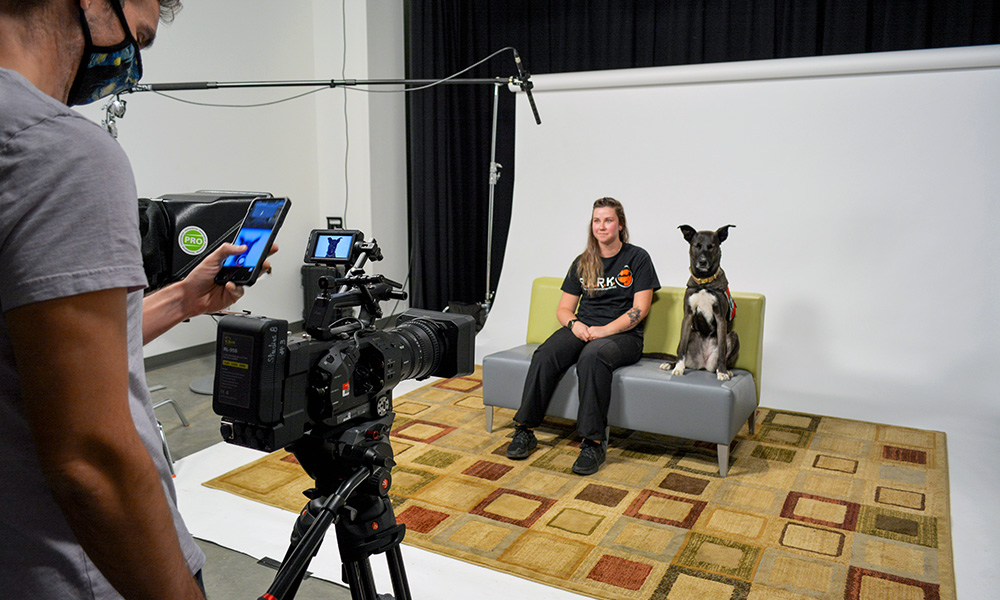
Taylor Wilson with UBCO studios, Ty Wolczuk and Luna, a rescue dog from Mexico, prepare to film a virtual canine therapy session. Photo credit: Freya Green
While spending time with dogs has been well documented as an activity that improves wellbeing, new research—thanks to the COVID-19 pandemic—proves that a remote canine session can be just as therapeutic as an in-person visit.
The research, led by Dr. John-Tyler Binfet, Associate Professor in UBC Okanagan’s School of Education, and Dr. Christine Tardif-Williams, an Associate Professor with Brock University, has found that spending time virtually with a therapy dog can enhance student wellbeing.
This study was one of the first to assess the effectiveness of virtual canine-assisted interventions.
“It’s well known that being a university student can be stressful, and since 2020 students have experienced an increase in stress due to an interruption of their studies and social isolation from COVID-19,” says Dr. Binfet. “Students are continually learning in a virtual world, and it makes sense that some of their social and emotional support could be offered this way as well.”
More than 450 students participated in the study and were randomly assigned to a live online visit or pre-recorded video sessions either with or without a dog present—all visits involved a dog handler. Before each session, participants reported on their wellbeing; specifically measuring their loneliness, stress and connectedness to campus.
Each session lasted five minutes with dog handlers using a script resembling a typical conversation shared during an in-person visit, such as sharing information about their dog and asking participants to reflect on their wellbeing.
Regardless of the type of visit, all students experienced significant reductions in anxiety, stress, loneliness, decreased negative affect, and stronger feelings of connectedness to their campus. Notably, those who participated in an online session with a dog experienced significant improvements in their positive affect.
“The results show that spending virtual time with therapy dogs is a viable way for students to reduce their stress,” says Dr. Binfet. “For some students, virtual may be the preferred way to interact, which may lead to organizations offering more virtual sessions in the future.”
In addition, as in-person access to dogs isn’t always possible for students as not all schools have therapy dog programs, Dr. Binfet suggests the results can influence post-secondary mental health and wellness programs along with the organization and potential delivery of canine-assisted intervention programs.
This research, supported by VEDA Exclusive Student Living, was published in Anthrozoös, an international journal showcasing multidisciplinary research on interactions and relationships with animals.